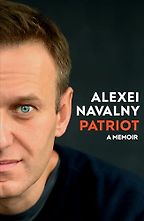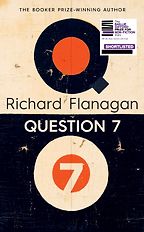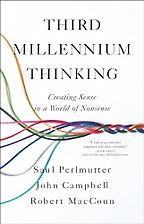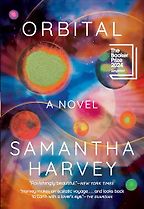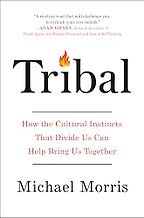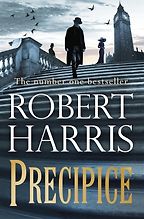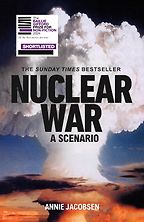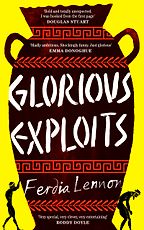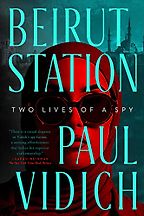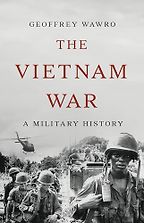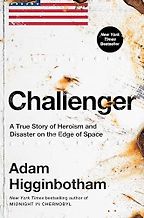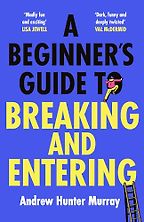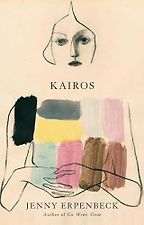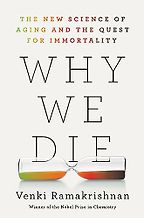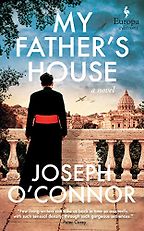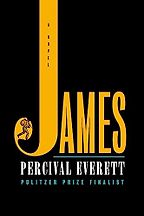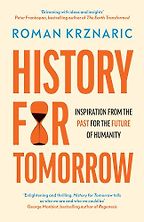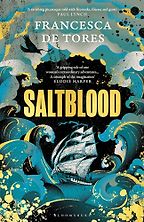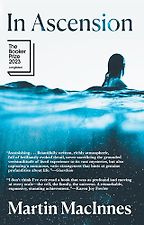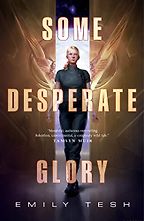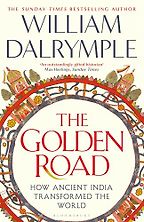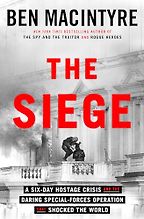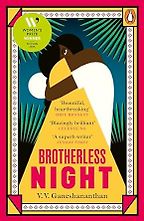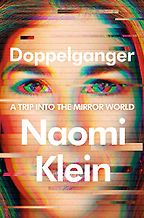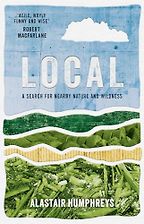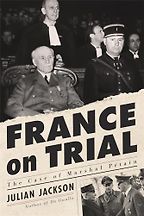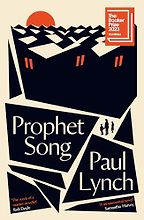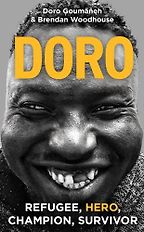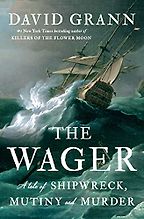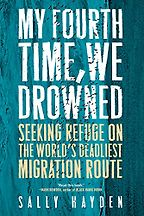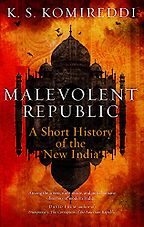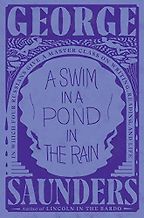New Books
Last updated: June 30, 2025
With so many new books coming out, what’s the best way to choose what to read? At Five Books, we believe that any book that helps with either enjoying life or understanding the world better is worth reading, and those are the qualities we look for in books. If you’re interested in a particular genre—new history books or new historical fiction or the even best new books for kids–we’ve got more detailed lists you can click on, with a wider range of books.
(Note: We also have a list of the best books of all time. These have to be picked again and again in our expert interviews, so tend to be older books, with a few exceptions. Many of them are novels or historic texts already in the public domain and available as free ebooks).
New Biographies | New Memoirs | New History Books | New in Philosophy | New in Science | New Economics Books | New in Climate Change | New Books From Around the World | New in Language | New Literary Fiction | New Historical Fiction | New in Math | New in Psychology
Patriot: A Memoir
by Alexei Navalny, translated by Arch Tait with Stephen Dalziel
🏆 Winner of the 2025 National Book Critics Circle Prize for Autobiography
“It starts as an autobiography of his life: how he grew up, the various military towns he lived in, where he spent his summers in Ukraine, and what the best time he had was. He then goes through his political evolution in Russia, and then the most dramatic pages of the book and most transformative reading is when Navalny writes from prison. It’s his prison diaries. Then, that prison diary turns into his testament, the last words of a person who knows where this is going.” Read more...
The Best Nonfiction Books on Russia: The 2025 Pushkin House Prize
Gulnaz Sharafutdinova, Political Scientist
“There’s a connection with The Narrow Road to the Deep North because that book was also concerned with his father’s experience of being a slave laborer in the Second World War: he was an Australian captured by the Japanese…what holds this part memoir, part science, part history together is the personal thread. The book begins and ends with a kayaking accident the author, Richard Flanagan, has in a river in Tasmania. He is rescued, but only just. He describes this moment when he is floating above the river, looking down at himself. Is that death?” Read more...
The Best Nonfiction Books: The 2024 Baillie Gifford Prize Shortlist
Isabel Hilton, Journalist
Third Millennium Thinking: Creating Sense in a World of Nonsense
Saul Perlmutter, Robert MacCoun and John Campbell
🎯 A bestselling book on Five Books in 2024
“According to Nigel Warburton, it’s “a clear, accessible and enlightening guide to the tools of thinking that make science work. It’s a really enjoyable read and a great book for anyone who wants to think more clearly about evidence, argument, reason and the need for a degree of intellectual humility.” “ Read more...
Nonfiction Books to Look Out for in Early 2024
Sophie Roell, Journalist
Orbital
by Samantha Harvey
🏆 Winner of the 2024 Booker Prize
Orbital by Samantha Harvey, the first book set in space to win the Booker Prize, follows a team of astronauts aboard the International Space Station.
“It’s a very poetic book. Samantha Harvey creates beautiful imagery. It gets into the lives of six astronauts from different countries: Russia, Britain, America, Japan, Italy. They are all reflecting upon their own lives through the prism of looking at the Earth from above. It’s very powerful in how it gives this beautiful overview. It’s meditative in lots of ways, but gives us insight into the lives of these very different characters that is very believable and interesting.” Read more...
The Best Novels of 2024: The Booker Prize Shortlist
Nitin Sawhney, Musicians, Music Critics & Scholar
“Morris’s point, first of all, is that tribalism is innate. Going back to the Neanderthals, he spends quite a lot of time explaining how Homo sapiens has developed these tribal instincts and how they have not only protected but also advanced humankind. There is no getting round tribal instincts…What he’s arguing for is that there are real opportunities for positive change, if leaders…can harness this tribal instinct.” Read more...
The Best Business Books of 2024: the Financial Times Business Book of the Year Award
Andrew Hill, Journalist
Precipice
by Robert Harris
In his fictional account of the affair between ageing British prime minister H.H. Asquith and the vivacious young aristocrat Venetia Stanley during the summer of 1914, Robert Harris brings one of the most consequential chapters of modern history to life. Precipice spins a riveting drama around Asquith’s surviving letters to his lover, in which he details his romantic yearnings alongside top-secret intelligence as Europe hurtles headlong into World War One. In doing so, the novel – with great deftness and wit – explores the extent to which political power is shaped by the personal lives of those who wield it.
“This book is a scenario for what would happen if North Korea were to launch a missile at the United States…it is a scenario that is entirely based on documents, many of which have very recently been declassified, and on 10 years of interviews with people who were deeply engaged in the whole question of deterrence and of thinking about nuclear war and trying to prevent it…It’s a completely gripping but utterly terrifying scenario…You may wish you’d never read it, but you can’t put it down while you are reading it.” Read more...
The Best Nonfiction Books: The 2024 Baillie Gifford Prize Shortlist
Isabel Hilton, Journalist
Glorious Exploits: A Novel
by Ferdia Lennon
🏆 Winner of the 2024 Bollinger Everyman Wodehouse Prize for Comic Fiction
“With no preamble, he presents us with an informal, chatty Syracuse of 412 BC. He can see the place and hear the tone so clearly in his head that the reader, whilst knowing perfectly well that both tone and story are fiction, never doubts him. That’s quite a feat.” Read more...
The Best Historical Fiction of 2025
Katharine Grant, Historical Novelist
“Paul Vidich is so good. That’s what I enjoy most about doing the Spybrary podcast. People write to me and say, ‘I would never have discovered Paul Vidich if it wasn’t for you and now I can’t get enough of it.’ I picked it this book up at Heathrow airport. I had been planning to watch movies on the flight but I inhaled this book instead. I just couldn’t put it down. It’s a thought-provoking and intense spy novel and I just wanted to finish it. The book is set during the Israeli-Hezbollah war in 2006. The events depicted are fictional but revolve around historical incidents, including the tragic murder of the CIA station chief, William Buckley, in Lebanon in 1985. “ Read more...
“Also in military history and getting good reviews is The Vietnam War by Geoffrey Wawro. Wawro’s argument is that it was not a fear of the domino effect in Asia or geopolitical calculations that led (and kept) America in Vietnam, but domestic politics: successive leaders did not want to appear weak on Communism. This is what made for a complete lack of strategy and half-heartedness in how the US pursued the war .” Read more...
Notable Nonfiction Books of Fall 2024
Sophie Roell, Journalist
Challenger: A True Story of Heroism and Disaster on the Edge of Space
by Adam Higginbotham
Challenger by Adam Higginbotham tells the story of the 1986 Space Shuttle disaster in a 'nonfiction thriller' style (Higginbotham also wrote a pacy book about the 1986 Chernobyl disaster). This is a great way to get an understanding of what happened, given the technical engineering details of creating a reusable, plane-like spacecraft, and the complicated decision-making process at NASA. There had been many warnings about the rubber O-rings (the direct cause of the accident) but they were not heeded.
“This book has speed, it has humour, it has great characters. And it’s a great concept. It would be fantastic to go live in other people’s houses. After I read it, I found myself wandering around Holland Park in London, looking at all the houses, dreaming that I could do the same thing. It’s a brilliant book. Funny and original.” Read more...
Kairos
by Jenny Erpenbeck, translated by Michael Hofmann
🏆 Winner of the 2024 International Booker Prize
“The story unfolds around a disturbing affair between a 19-year-old student and a 53-year-old married writer in East Berlin. Initially there is intense attraction. They both love music and art. He is a kind of mentor to her. They meet in secret, it’s very dramatic. It starts with love and passion, but it’s at least as much about power, art and culture—a different kind of obsession. The discussions of music, poetry and theatre take place alongside the political upheavals. It’s a novel about the weight of history, how it impinges on our lives.” Read more...
The Best Novels in Translation: The 2024 International Booker Prize Shortlist
Eleanor Wachtel, Broadcaster
“Ramakrishnan puts together all the evidence we have about the molecular and cellular biology of ageing and of cancer—and how this relates to mortality, and makes a very interesting point that I had never thought about, which is that there is a tension in the way our cells work in holding off ageing, but also holding off cancer. The two work at loggerheads; you don’t want to get cancer, but also you don’t want your cells to grow too old and to get too damaged to function. Preventing one can enable the other.” Read more...
“It’s certainly a thriller. It’s tense, tense, tense. But the big thing in this novel is not just the tension, it’s the voices. Joseph O’Connor gives a masterclass in the different voices of the people gathered around the priest Hugh O’Flaherty to help him organise and run the Escape Line—the escape routes out of Italy for POWs and others being pursued by the Nazis. If you feel you know Rome, you’ll find much to enjoy in the twists and turns of the streets, the hidden alleys, the sudden expanses and that ever-present ‘seethe of black water’, the Tiber. It’s full Rome immersion.” Read more...
The Best Historical Fiction of 2024
Katharine Grant, Historical Novelist
“James is obviously connected to Mark Twain’s Huckleberry Finn. It is not a retelling of that story, but in a way it’s the same universe. Percival has said himself that it’s not a correction. But is it a revisionist book? Yes, I guess it is. It’s from the perspective of Jim, or James, and we look at slavery from his perspective. We look at his incredible struggle, how his family is affected, how he has been separated from them and his struggle to reach them again. It has a revenge theme, kind of. But I guess I look at it as there being some historical catharsis, reading this book in relation to historical racism and slavery. It’s more of a cathartic narrative than a derivative one.” Read more...
The Best Novels of 2024: The Booker Prize Shortlist
Nitin Sawhney, Musicians, Music Critics & Scholar
History for Tomorrow: Inspiration from the Past for the Future of Humanity
by Roman Krznaric
History for Tomorrow is an empowering book by Oxford-based social philosopher Roman Krznaric, arguing that we have much to learn from history about how to tackle the challenges we face today. Krznaric focuses on ten existential challenges (including climate change, weakening of democracy, social media polarization) and how episodes from the past can help us to navigate them. Underlying the book is the notion that it's not technology that will solve the world's problems, but human ingenuity and our ability to organize ourselves to make change.
Saltblood
by Francesca de Tores
🏆 Winner of the 2024 Wilbur Smith Adventure Writing Prize for Best Novel
Saltblood by Francesca de Tores is a historical novel that imagines the life of Mary Read, a real-life 18th-century pirate. It's nicely written and very moving, and you're also propelled along by the sheer surprisingness of Read's story: this is a work of fiction but a lot of these things actually happened. At the back, the author lists primary and secondary sources for anyone wanting to find out more.
“it’s about and written from the point of view of Mary Read, and involves her relationship and pirating with Anne Bonny. It tells the story of Mary’s life, which is amazing. It’s almost like she lives several lives, and each of her lives is an adventure…I haven’t read a true account of Mary Read’s life, but there’s quite a lot of historical fact in Saltblood and I suspect it is accurate. One of the things I found incredibly skillful about this novel is that the author makes a real person’s life into a page-turning story. That’s difficult to do. As judges, we all loved Mary Read. One of the judges described her as ‘the badass central character.'” Read more...
“This is a literary entry on the list….There’s plenty of hard science in here, but it’s used not so much for boisterous adventure, as for a meditation on the wonder and strangeness of biological life…In space, Leigh’s role is the provision of fresh growing plants on board for the small crew to eat. Space itself is of secondary interested to her – in her own words, ‘Life is already alien, is already rich and strange…We don’t need to say it arrived seeded on a meteor to make it more so.'” Read more...
“Earth has been destroyed, and we follow a young woman from the space station housing human survivors. They’re wronged, they’re angry, and they’re clearly being run as a tiny illiberal personal empire by their idolised leader. Valkyr only begins to wake up to this when she’s assigned to ‘nursery’ – child-bearing – instead of the soldierly posting she’d been expecting. From there, the unravelling of her world begins. You think you’ve got the measure of the book, and then you meet the central AI and its capabilities, and a whole new sci fi element is introduced that re-opens the game.” Read more...
“It makes the case for India as a major driver of cultural change from about 250 BCE to 1200 CE. It tracks two things: the spread of Buddhism and the spread of Indian mathematics across the region and around the world…while I was familiar with the broad outlines of the story told in The Golden Road, most of the details I was not. Once I got past the introduction, I found the book hard to put down.” Read more...
Notable Nonfiction Books of Fall 2024
Sophie Roell, Journalist
The Siege: A Six-Day Hostage Crisis and the Daring Special-Forces Operation That Shocked the World
by Ben Macintyre
Ben Macintyre is the author of several unmissable nonfiction books about spies, including The Spy and the Traitor and Agent Sonya. The Siege is another pacy book, this time about the SAS, the UK's elite army unit, which rescued hostages from a siege at the Iranian embassy in London in 1980. The book is also interesting on the motivation of the terrorists, who came from a part of Iran that was being repressed by Ayatollah Khomeini's regime.
” This is easily the book I’ve recommended to friends most often this past year – I think it’s one of those rare books that will please fantasy readers while also winning over non-fantasy readers. A real pleasure. Fetter is the son of a god. His mother wants him to commit patricide. He is not so keen. After an introductory look at his childhood, we meet adult Fetter, who wants to live in the nearest cosmopolitan city, go to a support group for the children of deities, and move on with his life.” Read more...
“Once you’ve read this book, you’re never going to forget it. It’s absolutely searing, deeply moving. And it’s an utterly compelling piece of storytelling. There have been quite a few novels recently that have looked at the Sri Lankan civil war. This novel is unique in the way that it centres women’s experience of the war. She uses that lens of women’s experience to examine the impact on families, on the war of values that can tear families apart as much as the violence. And she’s unflinching in her commitment to complexity and nuanced and clear-eyed moral scrutiny of all sides of the conflict…It’s a novel that rewards multiple readings as well, because it’s packed with historical detail. It ranges in scale from the intimate to the epic.” Read more...
Recent Fiction Highlights: The 2024 Women’s Prize Shortlist
Monica Ali, Novelist
Doppelganger: A Trip into the Mirror World
by Naomi Klein
🏆 Winner of the 2024 Women’s Prize for Non-Fiction
“This is such an interesting book. It starts from the experience of the author being mistaken repeatedly for the writer Naomi Wolf, and her indignation about that. Because here are two women who have gone on very different directions, politically speaking. She uses that as a jumping off point to think about the way in which we all have digital doubles – thinking about our social media presences, and the way we recreate ourselves digitally. It becomes this incredibly clever, acutely observed, often funny meditation on the moment in history in which we are living.” Read more...
Recent Nonfiction Highlights: The 2024 Women’s Prize Shortlist
Suzannah Lipscomb, Historian
“The whole of Britain is divided up into Ordnance Survey maps, so I bought the local map of where I live. It covers 20 kilometers by 20 kilometers. Once a week I went out to a place I chose at random on the map. That randomness was really important to me, because otherwise I would just have gravitated to the sorts of places I always like going to. So I’d use an online random number generator to pick where on the map I had to go. Then I’d go there, usually on foot, but occasionally by bike, with my camera. Having a camera was also quite important to me, because that forced me to slow down and be observant. My challenge was quite a conceited one, which was to see everything in that square, every street, every footpath, every bit of woodland.” Read more...
The best books on Local Adventures
Alastair Humphreys, Travel Writer
France on Trial: The Case of Marshal Pétain
by Julian Jackson
🏆 Winner of the 2024 Pol Roger Duff Cooper Prize for nonfiction
“Pétain had been the hero of Verdun, a great figure, but he was being tried for treason for signing the armistice with the Nazi regime and being the leader of the Vichy regime in France. He was on trial for his life, accused of collusion with Nazi Germany, and the verdict wasn’t much in doubt. It’s about more than the fate of a particular person—it’s a judgment on these four years of French history. It was newly liberated France’s first opportunity to look back on what it had done and how it had come to this. It’s a terrible account of moral ambivalence, and what you should do when faced with a conquering army. France is asking itself what it could have done, faced with total defeat by Hitler.” Read more...
The Best Nonfiction Books: The 2024 Duff Cooper Prize
Susan Brigden, Historian
“The Booker Prize is the biggest fiction award in the UK and Ireland. Paul Lynch won the £50,000 prize in 2023 for Prophet Song, a darkly prophetic novel set in a near-future Ireland that the New York Times described as ‘an unsettling dystopian parable.’ In it, a biologist and mother of four must cope alone after the secret police take her husband into custody and the country descends into civil war. It’s earned comparisons with The Handmaid’s Tale and 1984, but Lynch has downplayed the ideological elements of the book” Read more...
Cal Flyn, Five Books Editor
Doro: Refugee, Hero, Champion, Survivor
Doro Ģoumãňęh and Brendan Woodhouse
"This is Doro and he is beautiful" is the opening line of Doro: Refugee, Hero, Champion, Survivor. It's the story of Doro Ģoumãňęh, a Gambian fisherman, who lost sight in one eye, some of his teeth, and experienced unbelievable horrors trying to get to Europe. The co-author is Brendan Woodhouse, a British firefighter who was one of the volunteers that rescued Doro on the Mediterranean, as part of a charity called Sea-Watch. It's hard not to cry reading this book. It's one of 2023's must-read books, and the must-read book if you live in Europe and care about other human beings.
This is a book about Doro and Brendan and it is beautiful.
“It’s about a voyage on an 18th-century British ship, the H.M.S. Wager, which ended with shipwreck and mutiny on a remote island, and about the betrayals and feuds among the survivors. It is tremendous. You learn so much: about maritime history, the world of the sea, the workings of Empire. It’s a fantastic, dark adventure story with heroes and villains.” Read more...
The Best Historical Nonfiction Books
Kate Summerscale, Journalist
My Fourth Time, We Drowned
by Sally Hayden
🏆 A Five Books Book of the Year
🏆 Winner of the 2022 Orwell Prize for Political Writing
“The subtitle is ‘seeking refuge on the world’s deadliest migration route’—that being the route from North Africa, across the Mediterranean, to Europe. All the books on the shortlist have a topicality and the ways in which they are topical are very varied and interesting. This is a book about events that are unfolding right now, as we’re speaking. We know they’re happening, but somehow we manage to push them away and not think about them. But migration is one of the huge issues of our time and this book really makes you feel it.” Read more...
The Best Nonfiction Books: The 2022 Baillie Gifford Prize Shortlist
Caroline Sanderson, Journalist
Malevolent Republic: A Short History of the New India
by Kapil Komireddi
Malevolent Republic by K.S. Komireddi, an Indian essayist and author, is a highly readable polemic tracing India's history over the last seven decades in just 200 pages. The title makes no bones about the author's angle: he is relentlessly critical, sparing no one and nothing in his quest to understand how India got to the point it's at today. He writes, "India can scarcely be taken seriously as a 'democratic counterweight' to China...as it itself transforms into a brutally exclusionary Hindu-supremacist state" run by "bigots dedicated to destroying all that made it." It's not just India's current leader that comes under attack. Indeed, Modi’s path to power seems almost incidental given the missteps of the preceding prime ministers—from Indira Gandhi, a ruthless leader “devoured by the ogre she fostered”, to Manmohan Singh, politically “the least qualified candidate for the job”.
A Swim in a Pond in the Rain: In Which Four Russians Give a Master Class on Writing, Reading, and Life
by George Saunders
A Swim in a Pond in the Rain, the latest book by George Saunders, is the ultimate writing class. He goes through short stories by four Russian writers—Chekhov, Gogol, Tolstoy and Turgenev—paragraph by paragraph or page by page to understand how they work, how they keep our interest, how they surprise us and what they tell us. He breaks them down to their skeletons and then shows how they are built up again. The book is an amazing journey into the mechanics/engineering/physics of stories, and why it is they do what they do.
